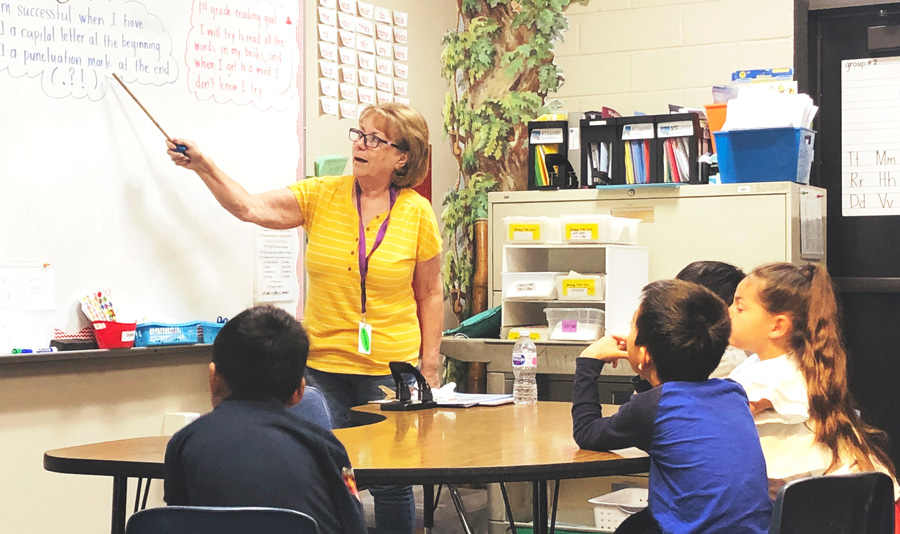class act: Best practices in action
class act:
Best practices in action

class act:
Best practices in action

School leadership created the Clubhouse to improve school culture and remove barriers to support services that ensure all students have what they need to succeed. The 2019 Golden Bell Award-winning program in eastern Los Angeles County brings all support staff in this preK-8 school under one roof to promote collaboration and cohesiveness in the services they provide.
“What makes our program unique is that all of our services are housed in one room, the ‘Clubhouse,’” said Maple Hill Elementary Principal Kelly Morris. “All support staff works collectively due to the proximity, use the same resources and all of their supports are aligned with one another. We also have developed a great referral system that is very comprehensive and full of rich data that steers our everyday decision-making. Students don’t get stuck in intervention for months on end. Our monitoring and feedback system gets kids the help they need and our goal is to get them back into the least restrictive environment.”
The school uses the Multi-Tiered System of Supports model, which assesses each student’s needs and provides interventions in appropriate tiers. While Tier 1 supports happen in the general classroom, students who need additional supports benefit from a smaller group environment. The Clubhouse is where students have access to Tier 2 supports, which include English language specialists and after-school academic services, as well as behavioral and social-emotional supports, such as access to staff mentors.
“The Clubhouse’s atmosphere eases student tension immediately,” Morris said. “When a student needs a quiet space to decompress, it’s off to the Clubhouse.” Other activities, such as reading groups with parent volunteers, friendship circles and gifted and talented education classes also take place at the Clubhouse, she said.
Prior to the creation of the Clubhouse — which is housed in a multipurpose room decorated to be a colorful, fun, safe haven outside of the traditional classroom — systems of support for children were fragmented and were not being successfully leveraged to improve student outcomes. Tier 2 support staff taught in isolation and had no interaction with one another, Morris said. Further, personnel didn’t share data or progress monitoring, and there was no cohesion in the curriculum, practices or strategies being used with the school’s neediest students.

That student’s results are indicative of the program’s success. Since the Clubhouse’s inception in 2016, students at Maple Hill have made significant academic gains. In 2015–16, just 52 percent of English learners scored proficient on the English Language Proficiency Assessments for California exam and only 22 students were redesignated. During the 2017–18 school year, however, 83 percent of the school’s English learners scored proficient or higher on the statewide assessment and 28 students were redesignated.
In 2017, when the California School Dashboard became public, Maple Hill was the only elementary school out of nine in the Walnut Valley district to receive the highest ranking in every component.
Just as important to improved academic outcomes are the positive interpersonal connections students have made and the increased connectedness they feel to their school, Morris said.
“Years ago, if a student was pulled from the classroom or our support staff pushed into the classroom, the student would be resistant or feel less than. Now, students are proud and excited to be a part of something that brings them so much joy and success,” Morris said. “Our students that receive support in the Clubhouse have better self-images of themselves and that transfers into all that they do. Prior to the Clubhouse, these students would be referred to the office for discipline, but now referrals are the lowest they have ever been.”